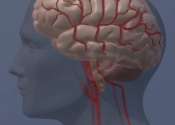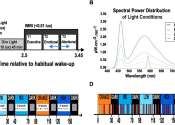Study identifies neuronal populations that drive defensive behavior in zebrafish
In vertebrates, animals that have a backbone or spinal column, many survival behaviors and physiological states are regulated by the hypothalamus. The hypothalamus is a region in the vertebrate forebrain located below the ...







